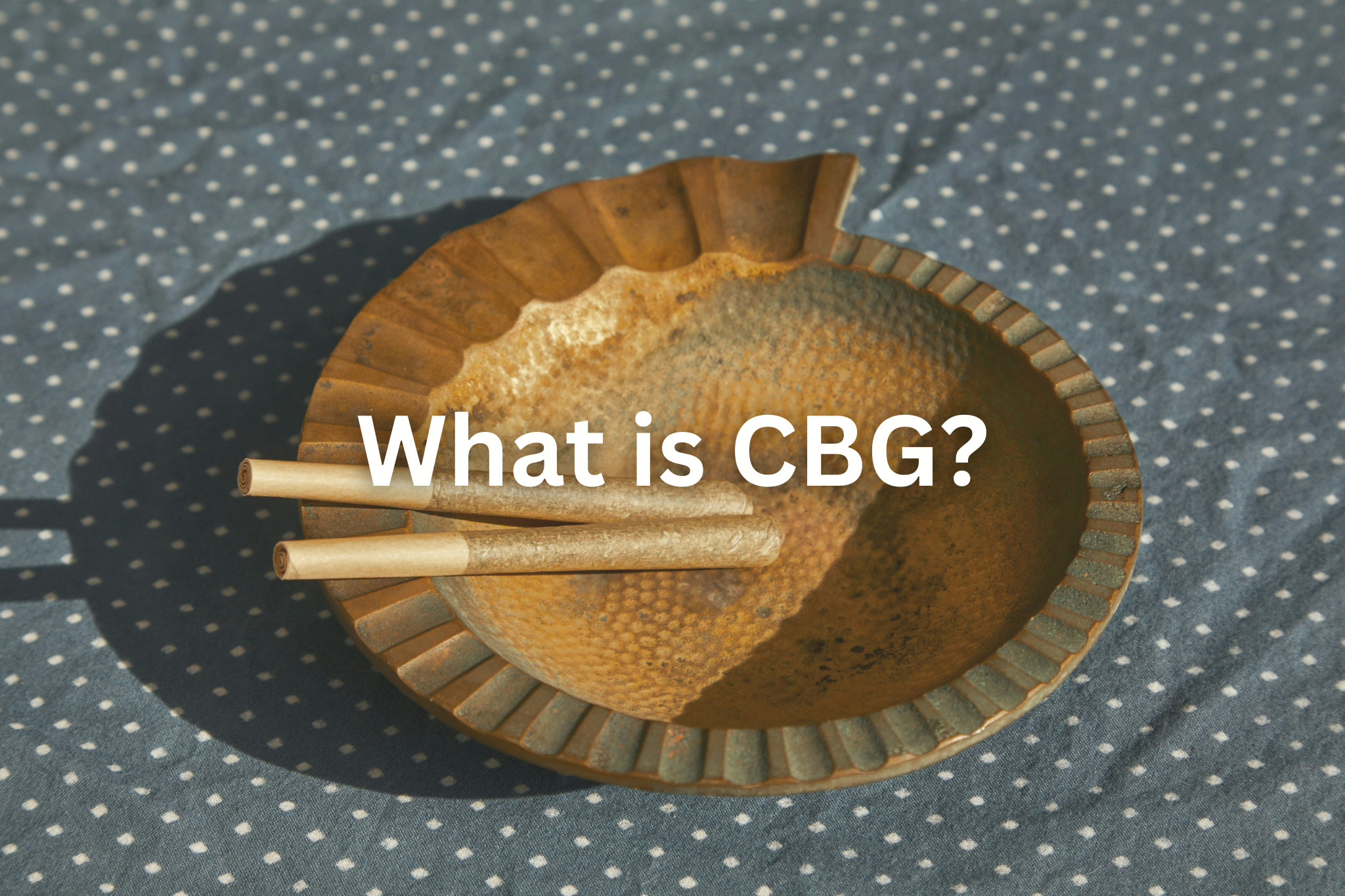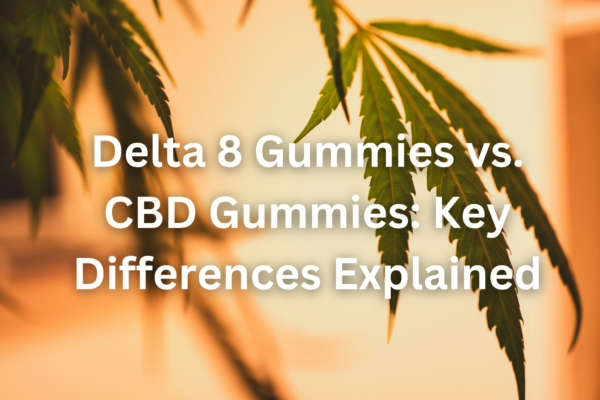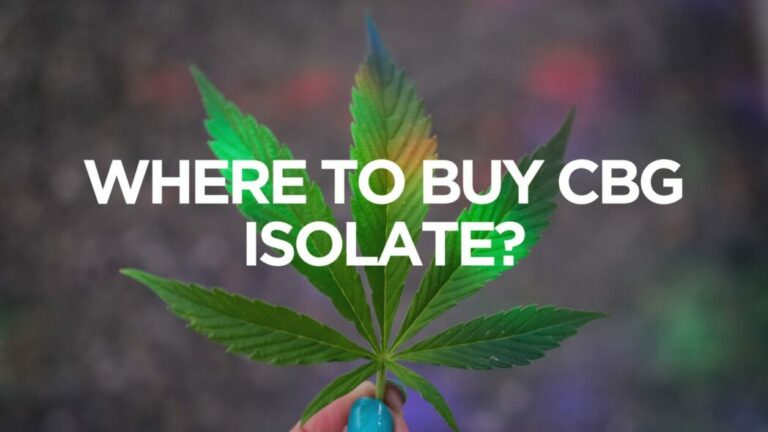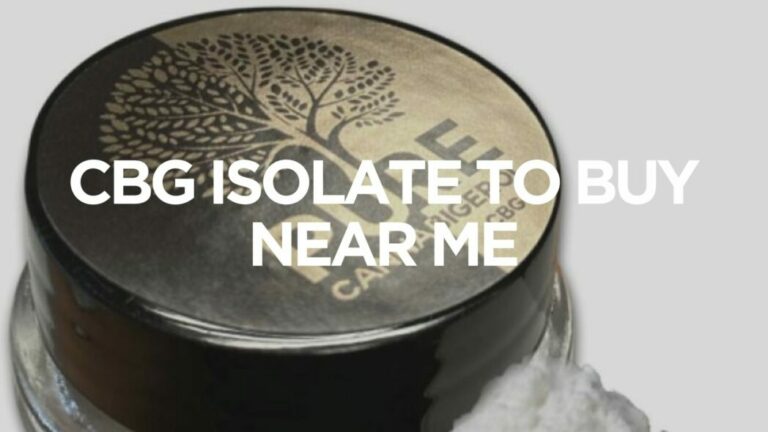
What is CBG: Everything You Need to Know About the ‘Mother of Cannabinoids’ and Its Benefits
You’ve probably heard of and tried CBD and THC, but CBG products? Sounds like the new kid in class, right? Cannabigerol is actually the OG phytocannabinoid and the so-called ‘mother of cannabinoids.’ From its role in creating other cannabinoids to its potential benefits, this one deserves your attention.
What is CBG?

CBG, short for cannabigerol, is a lesser-known but essential phytocannabinoid found in cannabis plants. While it might not get as much attention as its counterparts, like CBD or THC, CBG is the foundation for them. It’s often called the “mother of cannabinoids” because it serves as a precursor, meaning other cannabinoids like THC and CBD are derived from it during the plant’s growth process.
Chemically, CBG starts as CBGA (cannabigerolic acid), the acidic form of cannabigerol. During the plant’s development, enzymes convert CBGA into THCA, CBDA, or CBCA, which eventually become THC, CBD, or CBC after exposure to heat or light. Any CBGA that doesn’t convert stays as CBG, making it rare in mature cannabis plants.
How CBG Differs from CBD and THC
Here’s a quick breakdown of how CBG stands out from CBD and THC:
| Property | CBG | CBD | THC |
| Psychoactivity | Non-intoxicating | Non-intoxicating | Intoxicating (“high”) |
| Receptor Interaction | Binds to both CB1 and CB2 receptors | Primarily influences CB2 receptors | Binds mostly to CB1 receptors |
| Role in Cannabinoids | Precursor to other cannabinoids | Derived from CBGA | Derived from CBGA |
| Common Product Forms | CBG isolate, oils, tinctures | Oils, gummies, capsules | Flower, edibles, concentrates |
| Potential Effects | Balanced interaction with receptors | Calming and relaxing | Euphoric and psychoactive |
The way CBG interacts with your endocannabinoid system is unique. THC primarily binds to CB1 receptors in the brain, which is why it has such strong psychoactive effects. CBD, on the other hand, influences CB2 receptors found in the immune system, with a more subtle interaction with CB1 receptors. CBG takes a balanced approach, interacting with both CB1 and CB2 receptors. This dual action allows CBG to influence both mental and physical responses in the body.
Potential Health Benefits and Effects of CBG
With growing research into its effects on the body, CBG is becoming a favorite for those seeking natural alternatives. Let’s dive into the benefits of CBG, from its potential anti-inflammatory properties to its impact on brain health.
- Anti-Inflammatory Effects: Recent studies suggest that CBG may support a healthy inflammatory response. For instance, research indicates that a combination of CBD and CBG may have inflammation-reducing effects.
- Stress Relief: In a clinical trial, participants who took 20 mg of hemp-derived CBG reported reduced feelings of anxiety and stress compared to a placebo. Notably, CBG did not produce the intoxication or cognitive impairments associated with THC.
- Neuroprotection: Research is exploring CBG’s potential neuroprotective properties. A review highlighted CBG’s ability to interact with the endocannabinoid system and other key signaling pathways, potentially influencing inflammation, pain, and neurodegeneration.
- Other Potential Benefits: Emerging research suggests that CBG may have antibacterial properties and could influence appetite. The same review noted CBG’s potential in modulating physiological processes, including those related to metabolic and inflammatory disorders.
While CBG shows promise in various areas, it’s important to note that research is ongoing, and more studies are needed to understand its effects and potential benefits fully. As always, consult with a healthcare professional before adding new supplements to your routine.
CBG Products for Your Wellness Goals

With so many CBG products available, knowing what to look for can make all the difference. From checking product quality to finding the format that suits your lifestyle, here’s how to choose the perfect cannabinoid product for your wellness goals.
Key Factors to Consider
When buying CBG products, keep an eye out for a few key details:
- Purity: High-quality CBG isolate or tinctures should be free of contaminants. Check for lab reports that confirm their content.
- Concentration: Look for clearly labeled products that state the exact amount of cannabigerol per dose. This ensures you’re getting what you need.
- Third-Party Testing: Reputable brands send their products to independent labs for testing. These reports guarantee the product’s safety and potency.
Product Types and Their Benefits
The form of CBG you choose depends on your preferences and lifestyle. Here are some popular options:
- CBG Tinctures: These are versatile and easy to use. For example, the Cannaclear CBG Tincture allows you to measure precise doses and take them directly or mix them with food or drinks.
- CBG Isolate: If you want pure CBG, Bulk CBG Isolate is an excellent choice. It’s great for those who prefer customization, as you can mix it into your favorite products.
- Capsules: Convenient for on-the-go use, capsules offer pre-measured doses without any guesswork.
- Oils: These are similar to tinctures but may include additional ingredients for flavor or added benefits.
How to Incorporate CBG into Your Daily Routine

Adding cbg to your daily routine is easier than you think. With the right products and a bit of know-how, you can make this versatile cannabinoid a regular part of your wellness regimen.
Start small and work your way up. Begin with a low dose, such as 5-10mg of cannabigerol, and observe how your body responds. If you feel good and want to increase the dose, do so gradually over a few days. Everyone reacts differently, so listen to your body and adjust accordingly.
Always prioritize safety. While CBG is generally well-tolerated, some may experience mild side effects like dry mouth or drowsiness. If you’re new to cannabinoids or taking other medications, consult with a healthcare professional before starting CBG. This ensures you can enjoy the effects of CBG without any concerns.
Conclusion
CBG has carved out its place in the world of cannabinoids. From its role as the “mother of cannabinoids” to its balanced interaction with the body’s receptors, cannabigerol offers unique properties that set it apart. While it won’t get you high like THC, its potential benefits, such as supporting balance and promoting wellness, make it a compelling option for those exploring natural alternatives.
If you’re curious about integrating CBG into your daily routine, it’s worth considering its many forms, like CBG isolate, tinctures, or capsules. High-quality products ensure you get the most out of this versatile phytocannabinoid.
For a premium experience, check out Cannaclear, where you’ll find top-tier CBG products. Interested in pure options? Learn more about where to buy CBG isolate. With us, you can trust you’re getting products that are tested, pure, and effective.
Frequently Asked Questions
What will CBG do for you?
CBG, or cannabigerol, is a non-intoxicating cannabinoid found in cannabis plants. Unlike THC, it doesn’t produce a “high.” Research suggests that CBG may have potential therapeutic benefits, including anti-inflammatory and neuroprotective properties. However, more studies are needed to fully understand its effects and efficacy.
What does CBG do vs CBD?
Both CBG and CBD are non-intoxicating cannabinoids, meaning they don’t cause a “high.” While they share some similarities, they interact differently with the body’s endocannabinoid system. CBG binds directly to both CB1 and CB2 receptors, potentially delivering its effects more efficiently. In contrast, CBD has a more indirect interaction with these receptors.
Does CBG get you more high?
No, CBG does not produce a high. Unlike THC, CBG is non-psychoactive, meaning it doesn’t induce the euphoric effects associated with cannabis use. This makes it appealing for those seeking potential therapeutic benefits without intoxication.
Is CBG indica or sativa?
CBG is a cannabinoid present in both indica and sativa strains of cannabis. Its concentration varies depending on the strain and cultivation methods. Breeders are developing specific strains with higher CBG content to meet growing interest.
Does CBG get you stoned?
No, CBG does not get you stoned. It lacks the psychoactive properties of THC, so it doesn’t cause the intoxicating effects typically associated with cannabis. This allows users to experience potential benefits without impairment.
Is CBG legal?
The legality of CBG varies by jurisdiction. In many places, CBG derived from hemp with less than 0.3% THC is legal. However, it’s essential to check local laws and regulations before purchasing or using CBG products.
How is CBG extracted?
CBG is typically extracted from young cannabis plants because they contain higher concentrations of the cannabinoid. Extraction methods include CO2 extraction, ethanol extraction, and other solvent-based techniques. These processes isolate CBG for use in various products.
What forms does CBG come in?
CBG is available in several forms, including oils, tinctures, capsules, and isolates. Each form offers different methods of consumption, catering to user preferences and desired effects.
Can you take CBG with other cannabinoids?
Yes, CBG can be taken with other cannabinoids. Some studies suggest that combining cannabinoids may produce an “entourage effect,” potentially enhancing their overall benefits. However, more research is needed to understand these interactions fully.
Are there any side effects of CBG?
Current research indicates that CBG is generally well-tolerated with minimal side effects. However, comprehensive studies on its safety profile are limited. It’s advisable to consult with a healthcare professional before starting any new supplement regimen.





